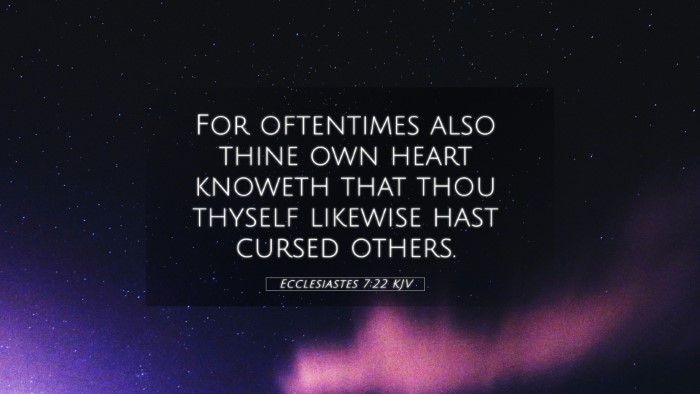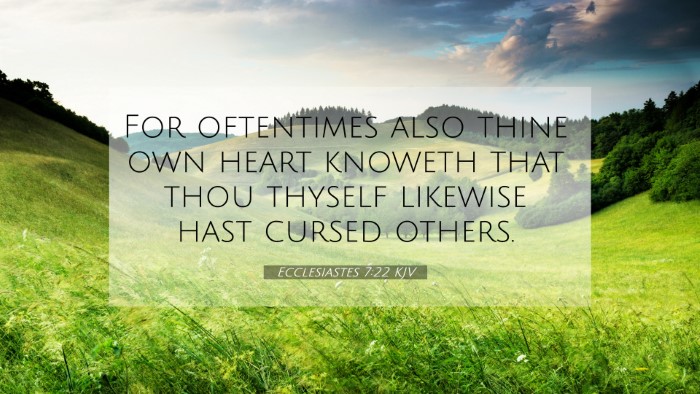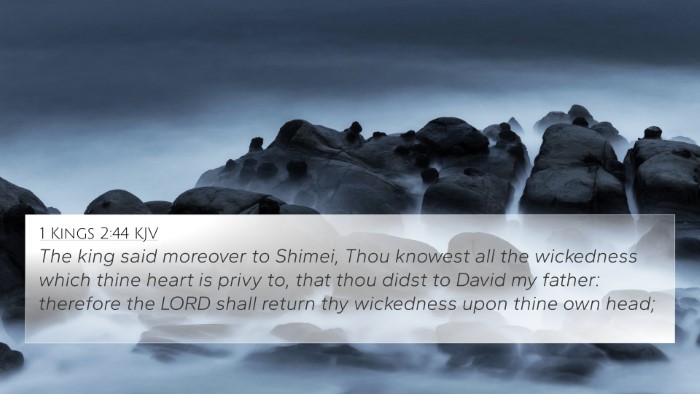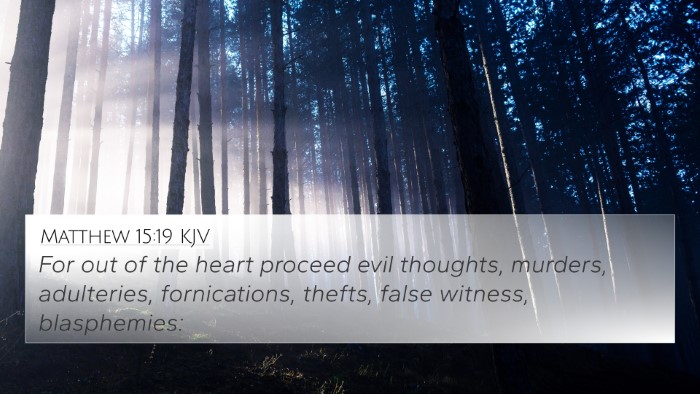Old Testament
Genesis Exodus Leviticus Numbers Deuteronomy Joshua Judges Ruth 1 Samuel 2 Samuel 1 Kings 2 Kings 1 Chronicles 2 Chronicles Ezra Nehemiah Esther Job Psalms Proverbs Ecclesiastes Song of Solomon Isaiah Jeremiah Lamentations Ezekiel Daniel Hosea Joel Amos Obadiah Jonah Micah Nahum Habakkuk Zephaniah Haggai Zechariah MalachiVerse
Ecclesiastes 7:1 Ecclesiastes 7:2 Ecclesiastes 7:3 Ecclesiastes 7:4 Ecclesiastes 7:5 Ecclesiastes 7:6 Ecclesiastes 7:7 Ecclesiastes 7:8 Ecclesiastes 7:9 Ecclesiastes 7:10 Ecclesiastes 7:11 Ecclesiastes 7:12 Ecclesiastes 7:13 Ecclesiastes 7:14 Ecclesiastes 7:15 Ecclesiastes 7:16 Ecclesiastes 7:17 Ecclesiastes 7:18 Ecclesiastes 7:19 Ecclesiastes 7:20 Ecclesiastes 7:21 Ecclesiastes 7:22 Ecclesiastes 7:23 Ecclesiastes 7:24 Ecclesiastes 7:25 Ecclesiastes 7:26 Ecclesiastes 7:27 Ecclesiastes 7:28 Ecclesiastes 7:29






